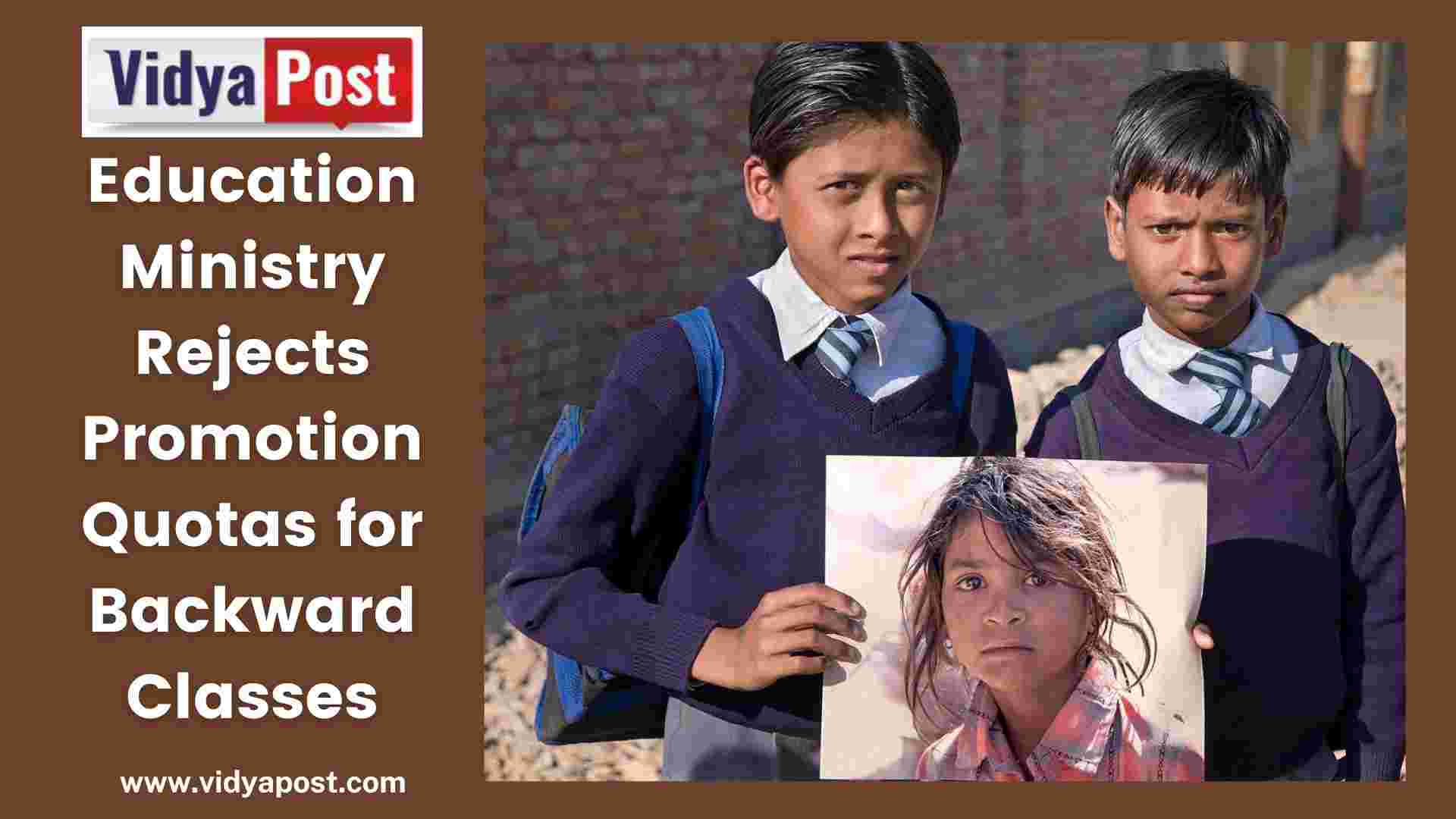Education Ministry Rejects Promotion Quotas for Backward Classes

In response to a query from a Congress MP in the Lok Sabha, the Union Ministry of Education has categorically denied any proposal for reservation in promotions for Other Backward Classes (OBCs) within central educational institutions.
Without promotion quotas in backward classes, what alternative approaches can ensure OBC faculty in central universities climb the leadership ladder and avoid career stagnation?
The existing Central Educational Institutions (Reservation in Teachers Cadre) Act, 2019, mandates reservation for SCs, STs, and OBCs in direct recruitment, considering universities as single units. However, this reservation doesn't extend to promotions.The Education Minister clarified that vacancies arise continuously due to retirements, resignations, and increased student strength, and universities are responsible for filling them promptly. Over 6,080 faculty positions, including professorships, have been filled through "Mission Recruitment" drives, with 871 positions for SCs, 426 for STs, and 1,424 for OBCs, demonstrating their presence in direct recruitment.
The absence of a promotion quota for OBCs has sparked concerns about their long-term representation in higher academic positions. While direct recruitment ensures their presence at entry levels, the lack of a similar mechanism for promotions could potentially hinder their career progression and limit their leadership opportunities within universities.
The Ministry's stance on this issue might face further debate, particularly in light of ongoing demands for broader reservation policies across diverse sectors. While fulfilling existing quotas in direct recruitment remains a focus, the future of promotion quotas for OBCs in central educational institutions remains uncertain and open to potential changes based on future policy decisions.
This situation necessitates a deeper analysis of the historical context of reservation policies in India, the arguments for and against promotion quotas, and the potential impact of the current decision on various stakeholders, including universities, faculty members, and students. By providing a comprehensive overview of the current scenario and potential future developments, we can contribute to a more nuanced understanding of the ongoing debate surrounding reservation policies and their implications for inclusivity and representation within India's educational landscape.(News Source)
Share:

2 Comments
Jordan Singer
2d2 replies
Santiago Roberts
4d